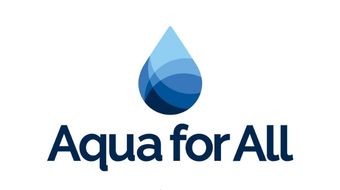On July 29, 2020, the World Economic Forum, in partnership with Toilet Board Coalition, India (TBC), with support from Swaccha Bharat Mission Urban (SBM-U) and Municipal Corporation of Greater Mumbai (MCGM) kicked off ‘Healthy Cities & Communities – Mumbai’ initiative through a virtual seminar.
Ms. Zara Ingilizian, Head of Consumer Industries and Future of Consumption Platform, World Economic Forum spoke about the multi-stakeholder focus of the Forum, and in wake of rapid urbanization and development, emphasized the need to focus on healthier cities and communities.
Ms. Mayuri Ghosh, Head of Healthy Cities & Communities initiative World Economic Forum, spoke about the aim to advance public-private collaborations to design and support socially vibrant, and health & well-being centric communities in cities. She emphasized that the COVID 19 backdrop made it even more compelling for private and public sector to come together and focus on health. She spoke about pilots across 4 global cities, including Mumbai, and establishing a globally-relevant inclusive framework for local level imperative & action, and serve as a catalyst to activate public-private collaborations at a city-level to support healthier communities, working alongside local, state, national governments.
Given Mumbai context, a city of over 20 million, and the challenges thrown up due to COVID 19, there was a deep dive session on hygiene and sanitation at the webinar.
On behalf of the Ministry of Housing and Urban Affairs, Government of India, Shri Binay Jha, Director Swachha Bharat Mission spoke about the success of SBM urban and shared innovative initiatives such as Swachhata Sarvekshan, that fostered competitive spirit between cities, which resulted in overall improvements water sanitation and hygiene across Indian cities. He also spoke about the need to continue the focus on SBM, and highlighted next priorities around waste segregation at source and city solid waste management
Shri Suresh Kakani Additional Commissioner, MCGM spoke about the steps taken by the administration in containing COVID 19, and emphasised that safe water, sanitation, hygiene & behaviour change, and ensuring effective cleaning, maintenance and operation of public toilets were top priorities for MCGM. He was hoping to see stronger private sector engagement in shaping a healthier Mumbai, across hygiene, health and nutrition & healthy food choices
Dr. Nimish Shah, Managing Director of Toilet Board Coalition (TBC), India chapter introduced TBC, as a global private sector promoted coalition, known for popularizing the term Sanitation economy. Its steering committee consists of reputed organizations like Tata Trusts (TT), Hindustan Unilever Ltd. (HUL), Lixil India, Kalyani Cleantech and USAID, India
TBC members shared interesting projects of relevance for Mumbai city:
- TT’s Project Garima, an initiative to bring dignity and safe working conditions for sanitary workers in Mumbai
- HUL’s innovative community sanitation model, Suvidha Centre that brings clean hygienic and safe toilets to crowded slums and provides other reliable water related services to the community, whilst saving water through grey water recycling. HUL also shared about the partnership with MCGM around distribution of sanitation products to protect frontline Corona Warriors in Mumbai (and several other cities) during the ongoing pandemic
- TBC, India shared their pioneering work on Pune Smart Sanitation City, showcasing the interesting developments in digital and smart technologies to make health hygiene and sanitation efficient, scalable to city levels

During the Q&A the audience and panel members deliberated upon the ways of addressing challenges and barriers in mainstreaming such initiatives and partnering and learning from each other to help scale up, and build resilient and healthy cities.
The hygiene & sanitation session was followed by a shorter focused session on mental health. The participants shared insights around increasing mental health challenges, which appears to have been exacerbated during the current crisis.
The next meeting will be convened by November 2020 with an objective to identify focused projects in WASH and other relevant areas such as nutrition and mental health
About Toilet Board Coalition (TBC): Initiated in 2014 and formalised in 2015 as a business-led partnership and platform, the TBC has the ambition to address the global sanitation crisis by accelerating the Sanitation Economy. The TBC is enabling private sector engagement; connecting large and small companies; and ensuring close collaboration between private, public and non-profit sectors with the common goal to achieve Sustainable Development Goal 6 (SDG6), universal access to sanitation.
The TBC runs the Toilet Accelerator, the world’s 1st accelerator programme dedicated to sanitation entrepreneurs in low-income markets.
The members of the Toilet Board Coalition believe that accelerating the Sanitation Economy will deliver significant impact to business and society.
TBC established its first country chapter, Toilet Board Coalition, India which started its operations in January 2020
About the World Economic Forum: The World Economic Forum is the International Organization for Public-Private Cooperation. The Forum engages the foremost political, business, cultural and other leaders of society to shape global, regional and industry agendas. It was established in 1971 as a not-for-profit foundation and is headquartered in Geneva, Switzerland. It is independent, impartial and not tied to any special interests.






